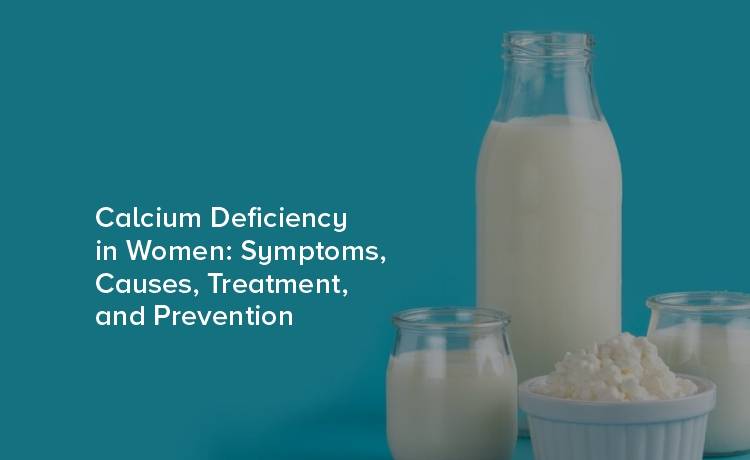
Calcium is a vital mineral required for the proper development and maintenance of strong bones and teeth. It also plays an essential role in several other bodily functions, including muscle contraction, nerve signaling, and blood clotting. Despite its significance, many women suffer from calcium deficiency, which can lead to serious health complications if left unaddressed.
The human body does not produce calcium on its own, which is why we need to acquire it from our diet. When the intake of calcium is insufficient to meet the body's needs, it can lead to a deficiency. Women are especially at risk for calcium deficiency due to factors like pregnancy, breastfeeding, and menopause.
A calcium deficiency can have various effects on the body, which may not be immediately noticeable but can become apparent over time. Low calcium levels can result in weaker bones that are more prone to fractures, as well as issues with muscle function and blood clotting.
Recognizing the signs of a calcium deficiency is the first step in addressing the issue. Symptoms may vary from mild to severe and can include:
Osteopenia is a condition where bone mineral density is lower than normal but not low enough to be classified as osteoporosis. If left untreated, osteopenia can progress to osteoporosis, which is a serious deterioration of bone density and quality, leading to increased fracture risk.
Understanding the root causes of a calcium deficiency can help in taking proactive steps to maintain healthy calcium levels. Some common causes include:
Many women fail to consume the recommended daily allowance of calcium due to poor dietary choices or lifestyle factors. For example, cutting out dairy products or consuming diets that are low in nutrients can contribute to a calcium deficiency.
Vitamin D is crucial for the body to absorb and use calcium efficiently. Women with low vitamin D levels may experience decreased calcium absorption, leading to an increased risk of deficiency.
If you are diagnosed with a calcium deficiency, there are several treatment options available to address the issue and restore healthy calcium levels.
Adjusting your diet to include more calcium-rich foods can be an effective way to increase calcium intake. This includes dairy products, leafy greens, and fortified foods.
In some cases, healthcare providers may recommend calcium supplements to bolster intake. It's important to choose the right supplement and dosage under the guidance of a professional, as excessive calcium intake can also lead to health issues.
Taking vitamin D supplements may also be advised to improve calcium absorption. Additionally, magnesium and vitamin K are essential for bone health and can complement calcium supplements.
Beyond dietary changes, certain lifestyle adjustments can enhance the body's ability to absorb and utilize calcium.
Engaging in weight-bearing exercises, such as walking or dancing, can help to strengthen bones and improve calcium retention.
High levels of caffeine or sodium can hinder calcium absorption in the body. Therefore, cutting back on these substances can be beneficial for bone health.
Excessive alcohol consumption can interfere with the body's calcium balance. Moderation or abstaining from alcohol may support better calcium levels.
Taking a proactive approach to your health can help prevent a calcium deficiency from occurring in the first place.
Eating a diet rich in calcium, with a focus on whole foods, can help ensure you get enough of this vital mineral. Including a variety of calcium sources in your meals can further safeguard against deficiency.
Regular health screenings can help detect a calcium deficiency early, allowing for prompt intervention and treatment.
Maintaining hormonal health through diet, exercise, and regular medical care can also support calcium levels, especially during menopause and beyond.
Adopting a holistic approach that includes a combination of dietary changes, supplementation when necessary, and healthy lifestyle habits can provide comprehensive support against calcium deficiency.
By familiarizing yourself with the signs and symptoms of calcium deficiency and taking proactive steps to prevent it, you can safeguard your bone health and overall well-being.